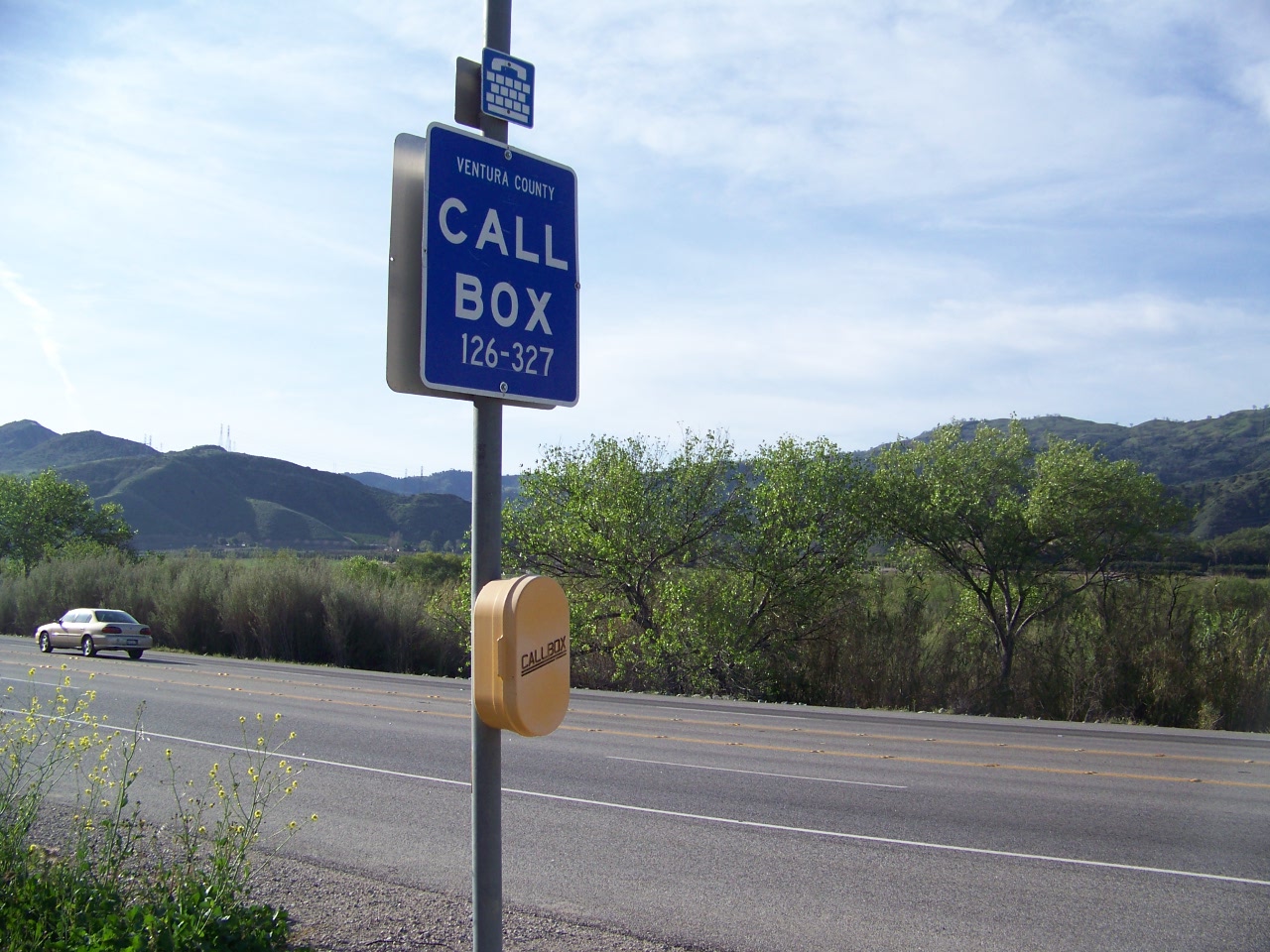VCTC to remove emergency call boxes along Ventura County highways, invest savings in alternate motorist aid services
Since 2004, motorists have made more than 58,000 calls from emergency call boxes on Ventura County highways. Yet times, and technology, have changed.
Due to declining use and maintenance service challenges, the Ventura County Transportation Commission (VCTC) will end its emergency call box program and remove its system of call boxes along highways in Ventura County, the agency announced July 1.
VCTC, in its role as the Service Authority for Freeway Emergencies (SAFE), maintains 427 call boxes along highways in Ventura County through the Ventura County Emergency Roadside Call Box System. The call boxes, which operate on the AT&T 4G cellular network, provide motorists who need roadside assistance with a direct line to the California Highway Patrol (CHP) dispatch.
The VCTC board approved the decommissioning of the emergency call box program at its regular meeting in May. VCTC has notified the California Department of Transportation (Caltrans) of its intent to decommission the program and has hired a contractor to place bags over the highway call boxes until the boxes can be removed. Once all the call boxes have been bagged, VCTC will terminate maintenance services and end cellular service. VCTC is hiring a contractor to remove the call boxes, dispose of or recycle the materials, and restore call box sites. The process is expected to be completed by September 1, 2025.
Call box usage has declined significantly over the past 20 years as the use of personal cell phones has increased. In 2005, motorists on Ventura County highways placed more than 5,800 calls through the emergency call box system. That number had fallen to 849 calls by 2024, a decrease of 85 percent.
Funding for the call box service comes through VCTC’s Motorist Aid Services Program, which is financed by a $1 annual vehicle registration fee on all vehicles registered in Ventura County. The total cost of operating the call box system ranges from $350,000 to $400,000 annually.
VCTC has also encountered challenges in maintaining the call box system, with the state’s sole call box maintenance service contractor unilaterally suspending its twice-yearly preventive maintenance inspections. VCTC’s maintenance services contract ended June 30, 2025, and VCTC has elected to not renew the contract. Feasible alternatives to the patented call box technology that can meet the state’s call box guidelines have not been identified.
VCTC staff is evaluating alternatives to the call box program to ensure motorists continue to receive emergency roadside assistance services. Options under consideration include:
- expanding VCTC’s Freeway Service Patrol program, which has provided no-cost roadside assistance to Ventura County motorists since 2021. FSP currently operates along certain segments of Highways 101, 118 and 23 during peak traffic periods and provides such services as fixing flat tires and providing a gallon of gas;
- additional signage to inform motorists of the SoCal 511 emergency phone system, which provides another option to receive roadside assistance by dialing 511;
- extended CHP agreements for enhanced traffic enforcement.
VCTC Executive Director Martin Erickson said: “VCTC, as the designated Service Authority for Freeway Emergencies, must balance its dual responsibilities to assist motorists on Ventura County highways and to use financial resources responsibly. By ending the call box system, VCTC will be able to redirect those cost savings into programs that provide a greater benefit to motorists. Staff will evaluate alternatives and return to the Commission with recommendations in the near future.”
More information about VCTC’s Freeway Service Patrol program is available at goventura.org/fsp. More information about SoCal 511 is available at go511.com.
